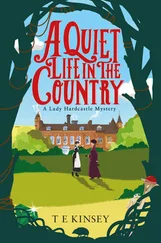‘What time will we have to leave?’ I enquired, wondering if there was any way that I could slip out to the drive and examine my opponent in advance.
‘After lunch some time.’ Martin yawned. ‘Don’t make such a fuss.’
The morning fled by with alarming speed. Every time I looked at my watch, it seemed to have made impossible advances; and in the end my resistance to the passing of time in proportion to its velocity was such that I felt as if I were trapped in some fast downhill ride, with the world a blur around me and the wind buffeting my face, the crowd of my other concerns left far behind at the top. We kept to Martin’s room, it having been implicitly understood that the hot spell had endured beyond the point at which it was imperative to go outside to that where it was imperative to stay in. I had instructed him to do his homework, swatting away every attempt he made to engage me instead in conversation, and sat in the window seat in gloomy contemplation and dread. There are few things more unpleasant than the anticipation of some inescapable, solitary trial. What begins as a distant blot can feed on all the intervening hours until it becomes a vast obstacle, in whose shadow it is impossible to feel the warmth of any future consolation. I could not foresee a time when my unhappiness would be over. I knew that at some point I would have driven, and would no longer be driving; but even this certain statement housed a hundred different outcomes, which left no room in it for comfort. The fact that I not only had to endure the interlude, but must give the performance of my life in it, meant that sheer survival was of little use to me. I wished then with all my heart that I had confessed the truth to the Maddens when the opportunity had first arisen; a truth which was now inadmissible, given that it had since gathered to itself so many lies.
‘Finished!’ said Martin triumphantly, waving a book at me. ‘Let’s go downstairs. It’s lunchtime.’
‘We’re just having a light scratch lunch in the kitchen,’ said Pamela when we presented ourselves. I wondered if her need to give so long and descriptive a title to something whose essence was informality signified a skill at hospitality or a terror of what lay outside it. ‘Toby’s helping Piers on the farm today, so I gave them sandwiches to take with them.’
‘What?’ said Martin gleefully, while I tried to work out whether the absence of Toby and Piers improved my situation or worsened it. I had certainly relied on Piers to promote calm during my first and inevitably chaotic manoeuvres on the drive, and on Toby to inspire panic; which left me, I decided, more or less where I had started.
‘What’s wrong with that?’ Pamela was saying sharply. ‘I think it was jolly nice of him to offer.’
‘I bet he didn’t offer,’ said Martin.
‘Well he certainly didn’t refuse,’ snapped Pamela.
‘I bet he was pissed off.’ Martin caught my eye menacingly. ‘I bet he envisaged a day of chasing Stella around the swimming pool.’
This, although I suspected he didn’t realize it, was the worst thing Martin could possibly have said. Pamela’s whole frame tensed at the remark.
‘Well, I shouldn’t think Stella would have minded too much about that,’ she said quietly.
‘Whoah!’ said Martin, grinning. ‘Bitchy!’
Although I was upset by Pamela’s comment, and offended by the exchange in general, I did not feel capable of intervening; partly because my anxieties about driving held me in an inescapable clinch, and partly because this type of conversation was so alien to me that I did not know how to enter it. Instead, I did something I rarely do: I bore the affront silently, and with a very apparent air of injury. We sat down at the table, and after she and Martin had made one or two desultory observations on other matters, Pamela turned to me.
‘Oh, for God’s sake, Stella, don’t sulk,’ she said, her voice poised between anger and humour. ‘It was only a bit of fun.’
This final outrage very nearly provoked me to fury. I remembered what Pamela had said earlier in the corridor about where I came from , as if it were, by implication and exclusion, a place of mysterious degenerations which I should, indeed must, concede in favour of the better sphere I now had the good fortune to inhabit; a place which, moreover, located as it was beyond the small circle of her concerns, could have no language of its own but merely an illiteracy in hers. I did not, in fact, think that Pamela regarded me as being beneath her; merely that she accorded such sovereignty to her own ideas about things, and those of people like her, that she took their authority to be a matter of universal agreement. Pamela, I saw, had been reared on the most general notions regarding people unlike herself; and with neither education nor acquaintance to fill in the detail, was possessed of that curious confidence which accompanies ignorance, and which is concerned more with keeping the world at bay than with understanding or even reforming it. Had it occurred under almost any other set of circumstances, she would not have been able to rebuke me for my appearance, nor draw from it the inference she just had; and it was here that her family, her house, and her station in life entered into a fatal collusion with her caprice. Pamela’s triumphs were not those of reason, religion, morality, or even etiquette; they were a mere triumph, though she didn’t know it, of numbers. She operated by a sort of inverted anomie; by which I mean that although she had rules, and plenty of them, their basis was the ever-shifting ground of what Pamela happened to find pleasing at the time, and their ultimate goal the proper delivery to Pamela of her own way. Where I come from, I wanted to say, we would never be so rude; but the mere thought brought on such a sudden ache of longing for the life I had left behind that I feared I would burst into tears if I articulated it.
‘I’m not sulking,’ I said instead. ‘I’m just thinking about something else.’
Pamela had opened her mouth, ready, I guessed, with some convenient stricture concerning the impropriety of thinking about something else, when Martin intervened.
‘Oh, leave her alone, you old bag,’ he said with his mouth full. ‘She’d tell you to sod off herself if she wasn’t so embarrassed.’
‘Stella can tell me to sod off if she likes!’ said Pamela, with a look of gay amazement. I felt that I would never fathom the process by which personal insult invariably manufactured good humour in her. ‘She knows we don’t mince our words around here.’
‘Sometimes I wish you’d mince them more,’ I said daringly, glad that I had managed to fit in some form of retaliation, however belated.
‘Oh dear!’ Pamela laughed, throwing back her head. ‘Do you think we’re all frightfully rude to each other? I did used to worry about that, but I’ve got so used to it now. Oh, stop! That’s disgusting!’ Martin had leaned towards her and was chewing deliberately with his mouth wide open. ‘Goodness, look at the time! You two’d better get moving.’
All at once my destiny was upon me. I had almost, in the second before Pamela noticed the time, forgotten what I had now to do; and as it rushed at me once more, I found my terror redoubled.
‘Right,’ I said, standing up. I was alarmed to notice a feeling of lightness in my legs. Nothing, in that moment, seemed quite real. ‘Are you ready?’
‘Mm.’ Martin stuffed in a last mouthful of food.
‘You know the way, don’t you?’ said Pamela, to me; evidently having been ignorant of the whole silent drama of deferral and relief in which I had been engaged over the past few days. She did not remember, I saw, that I had so far escaped driving Martin to the centre myself.
Читать дальше












